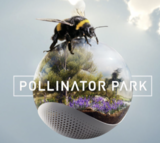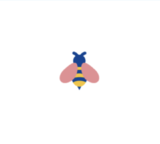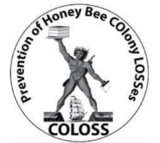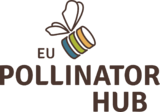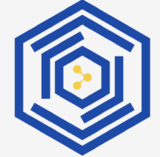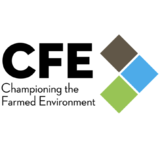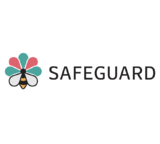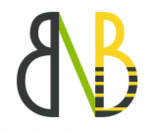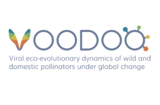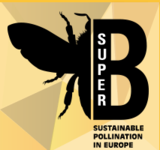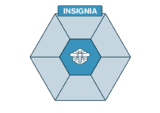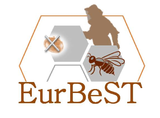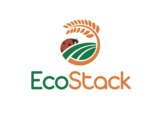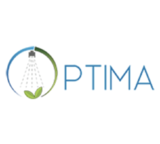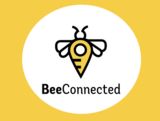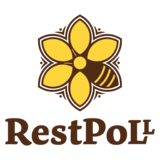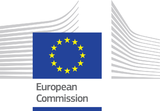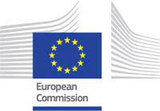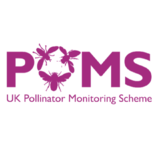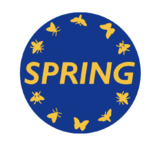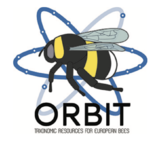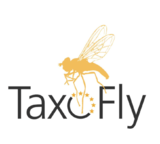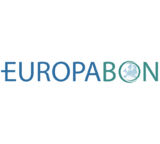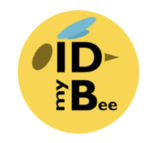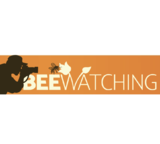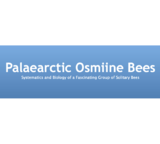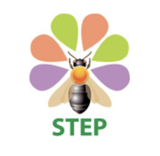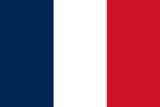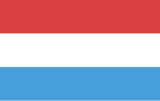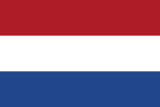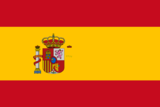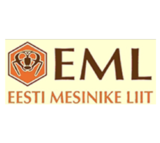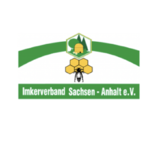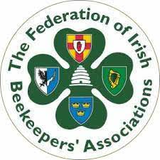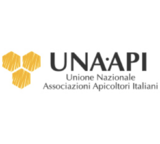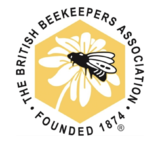pan-european assessment, monitoring, and mitigation of stressors on the health of bees
Key initiatives
PoshBee does its best to support sustainable beekeeping and pollination across Europe. However, stopping pollinator decline is not a one-man job and there are many other projects and strategies working toward protecting pollinators on different levels. You can consult some of these relevant initiatives in the list below.
+Information hubs
Pollinator Park was designed in collaboration with world renowned ‘archiobiotect’ Vincent Callebaut. It’s a 30-minute interactive and emotionally engaging virtual reality experience that immerses you in a futuristic world where man and nature co-exist in harmony, hoping to change your perspective and help turn the tide.
All around Europe people are making efforts to address the dramatic decline of pollinators. We all need to work together to tackle the challenge effectively. This platform aims to facilitate information sharing – on the problem and what is being done across the EU to solve it – and collaboration between stakeholders.
Whether you are a citizen, scientist, civil society activist, farmer, forester, beekeeper, business, or a representative of public authorities, this site will help you to find useful information and contacts.COLOSS (Prevention of honey bee COlony LOSSes) is an international, non-profit association headquartered in Bern, Switzerland that is focussed on improving the well-being of bees at a global level. They are composed of scientific professionals that include researchers, veterinarians, agriculture extension specialists and students.
The EU Pollinator Hub is a new milestone in efforts to improve the pollinator status, beekeeping and pollination in Europe. An online collective approach sharing harmonised and standardised data on pollinators to monitor their health and target actions better to protect them. The EU Pollinator Hub is a unique online platform that integrates and centralises data related to pollinators, bees, beekeeping, and other relevant data for the agricultural sector.
EU Bee Partnership Prototype Platform aims at collecting and exchanging standardised data on pollinator health and other relevant data based on the Bee Hub Proof of concept.
The European Food Safety Authority (EFSA) is currently financing the development of a platform to collect, integrate and communicate bee and pollinator-related data. The platform is based on the Bee Hub Proof of Concept (PoC) initially led by BeeLife European Beekeeping Coordination within the framework of the Internet of Bees Project. This new stage of development aims at responding to the main conclusions of the EU Bee Partnership: the need for data standardisation and communication.
Championing the Farmed Environment is a partnership which supports farmers to deliver environmental benefits within a productive farm business. It provides guidance and support to allow more farmers to manage their land in a way which works for their business and the environment.
+Wild bee health
+Honey bee health
B-GOOD has the overall goal to provide guidance for beekeepers and help them make better and more informed decisions.
+Agriculture and bees
+Bees across borders
The MUST-B project draws on EFSA’s expertise in areas such as animal and plant health, data collection and analysis, modelling, pesticides and environmental risk, but will also involve a range of experts and stakeholders from beyond EFSA. It comprises a number of interlinked activities that are being carried out either in-house or in collaboration with external experts, researchers and bodies such as EU Member States, the European Commission, EU sister agencies, and the European Reference Laboratory for Bee Health. The project is being overseen by a working group made up of experts from a variety of scientific backgrounds. The EU Bee Partnership and the research development supporting MUST-B (B-GOOD and PoshBee) play a crucial role in developing this aspect of the project.
+Pollinator monitoring and identification
The UK Pollinator Monitoring Scheme (PoMS) is part of a wider Pollinator Monitoring and Research Partnership (PMRP) that aims to establish how insect pollinator populations are changing across the UK.
They are working with existing recording schemes that focus on pollinating insects, and have established two new large-scale surveys for PoMS (the FIT Counts and the 1 km square survey) which are running throughout the UK with help from many volunteers.
The status of biodiversity in Europe is generally below standard and many targets are not being met. This is why MAMBO’s work programme aims to provide the knowledge, tools and infrastructure for monitoring wildlife and their habitats more comprehensively. The project will develop novel monitoring tools that will enhance knowledge of the state of biodiversity in Europe. Through its demonstration sites, MAMBO will showcase the effectiveness and added value of its new technologies. Automating biodiversity monitoring is a more cost-efficient and rapid process that allows for upscaling. MAMBO has the potential to dramatically improve the ecological monitoring landscape in Europe and beyond and in that way, contribute to the aims of the EU Biodiversity Strategy for 2030.
EuropaBONs mission is to overcome existing data gaps and workflow bottlenecks by designing an EU-wide framework for monitoring biodiversity and ecosystem services.
It aims to engage users at the regional, national and European level to identify the data needs of policies and targets aligned with the new European Green Deal.
IDmyBee is designed as a collaborative project of bee taxonomists and specialists to promote the diffusion of knowledge about wild bee diversity
With more than 2 000 species of wild bees in Europe, identifying a bee can quickly become an overwhelming task. Some bee species can be identified pretty much by anyone with the right tools. For others, it is not possible to assign a species name, or even a genus name without a careful examination, comparison with reference specimens, or even an expert's eye.
Atlas Hymenoptera is originally a joint initiative between the Mons University Zoology's laboratory and the Entomology Unit of Functional and Evolutionary of Gembloux Agro Bio Tech. It has been made possible thanks to the joint efforts of both services that maintain a biogeographic data base of Hymenoptera in Western Europe for many years.
Atlas Hymenoptera is now a platform that brings together many passionate people about hymenoptera's systematics, ecology, biogeography or ethology. This platform includes both French-speaking professionnals and non French-speaking professionnals and Hobbyists. On the website, you will find distribution maps and illustrations of many species from Europe, but you will also discover a relevant bibliography for major groups, the presentation of the team that is behind this work, and so on.
+National Pollinator Strategies
The Finnish national strategy and action plan for pollinators aims to halt the decline in the numbers of pollinators and their diversity by 2030, strengthen the populations of pollinator species and ensure the pollination of both wild and cultivated plants.
The action plan contains 27 measures, which are divided into five themes. The pollinator strategy also includes a proposal for national pollinator monitoring and the estimated resources required for it.
The French pollinator plan covers the period 2021-2026 and is structured along 6 axes:
- Improvement of scientific knowledge;
- Economic and support levers for farmers, beekeepers and foresters;
- Support for other activity sectors (urban development, linear infrastructure, industrial sites, sites with large land holdings, protected areas);
- Preservation of bee health;
- Regulations for the protection of pollinators during the application of plant protection products;
- Sharing pollinator-friendly agricultural practices.
The plan sets out concrete measures in favour of wild pollinating insects and honey bees to restore their habitats and improve their available food resources, as well as to restore the ecological services provided by pollination.
The Luxembourgish National action plan for the preservation of pollinating insects covers the period 2021 – 2026. Its scope covers issues related to securing pollination as a service: safeguarding insect communities, conservation of diversity of floral and faunal species, recovery and maintenance of biodiversity, but also agricultural productivity.
The Spanish National Strategy for the Conservation of Pollinators (2021 – 2030) was approved in 2020. It presents the state of pollinators and the main causes of their decline. Based on this diagnosis, it sets objectives and announces measures in four major areas of action:
- Promotion of favourable habitats;
- Improved management of pollinators and reduction of risks from pests, pathogens and invasive species;
- Reduction of the risk derived from the use of phytosanitary products;
- Carrying out research that helps to cover existing knowledge gaps and to disseminate and facilitate access to this information.
+Beekeeping associations
The Estonian Professional Beekeepers Association (EPBKA) was established in 2008 in order to popularize the beekepers’ profession. This non-profit association assembles the professional beekeepers in Estonia. The main activities involve the propagation of beekeeping as a profitable business and the development of this sector in Estonia, the promotion of honey and other bee products, and the study of the suitability of the used honey bee races to Estonian conditions.
The beekeeper association Sachsen-Anhalt e.V. was founded in 1990 and is the not-for-profit umbrella association of 67 local beekeeper organisations in the federal state of Saxony-Anhalt. It is one of the 19 associations which are registered under the national beekeeper association of Germany. Currently, ISA represents 1,943 beekeepers with 14,860 colonies (as of 15.08.2017) which is about 85% of all beekeepers in the federal state. The main task of ISA is the promotion of beekeeping and nature conservation.
FIBKA provides a range of services to members, including insurance, education programmes, guest lectures, and An Beachaire, a monthly magazine.
Biodlingsföretagarna (BF) is a non-profit industry association representing both nationally and internationally the interests of Swedish professional beekeepers. It was founded in 1999 and has currently about 550 members. BF’s main roles are consulting and advice to its members on a range of topics, foremost among which are bee and bee- health management, business advice, economics, marketing, and quality control
UNAAPI, the national union of Italian beekeepers associations, is a second level association grouping of 16 local associations, operating in 14 different Italian regions, and 2 national associations (AAPI - the association of Italian professional beekeepers - and COPAIT – the association for production and validation of Italian fresh royal jelly). UNAAPI represents about 40% of the managed Italian honey bee colonies and its priority commitment is protection of the environment: the honey bee is a fragile sensor and an important sentinel of the progressive degradation of rural biodiversity.
